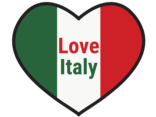What is the currency in Italy? The official currency in Italy is the Euro (€). It is advisable to exchange some money into Euros before you go to cover immediate expenses such as transportation or meals. However, ATMs are widely available in Italy and credit cards are accepted in most places, so it is not necessary to carry large amounts of cash. Exchange rates and fees can vary, so it’s recommended to check with your bank or a currency exchange service before your trip.
Understanding the Currency in Italy: Should You Exchange Money Before Your Trip?
Italy, a country renowned for its rich history, stunning architecture, and delectable cuisine, is a top destination for many travelers. One of the key aspects to consider when planning a trip to Italy is understanding the country’s currency and determining whether to exchange money before your trip.
Italy, being a member of the European Union, adopted the Euro (€) as its official currency in 2002. The Euro is used by 19 of the 27 EU member countries, making it one of the world’s most widely used currencies. It is subdivided into 100 cents, or ‘centesimi’ in Italian. Coins come in denominations of 1, 2, 5, 10, 20, and 50 cents, and 1 and 2 Euro coins. Banknotes are available in denominations of 5, 10, 20, 50, 100, 200, and 500 Euros.
Now, the question arises: should you exchange money before your trip to Italy? The answer to this question largely depends on your personal preferences and circumstances. However, there are a few factors to consider that can help you make an informed decision.
Firstly, it’s important to note that while credit and debit cards are widely accepted in Italy, especially in larger cities and tourist areas, cash is still king in many places. Smaller establishments, local markets, and rural areas may not accept cards, so having some Euros on hand is always a good idea.
Secondly, consider the exchange rates and fees. Banks and currency exchange services in your home country may offer less favorable rates than those in Italy. Moreover, they may also charge service fees. Therefore, exchanging a large amount of money before your trip could end up costing you more.
On the other hand, withdrawing money from ATMs in Italy can also come with fees. Your bank may charge you for international withdrawals, and the local bank may also apply a fee. However, ATMs usually offer better exchange rates than currency exchange services.

Italy, a country renowned for its rich history, stunning architecture, and delectable cuisine, is a top destination for many travelers. One of the key aspects to consider when planning a trip to Italy is understanding the country’s currency and determining whether to exchange money before your trip.
One strategy could be to exchange a small amount of money before your trip, enough to cover your initial expenses like transportation from the airport and your first meal. Then, you can withdraw more money from an ATM in Italy as needed.
Another factor to consider is the convenience. If you prefer to have everything sorted out before your trip, exchanging money in advance could give you peace of mind. However, remember that carrying large amounts of cash can be risky.
Lastly, consider using a credit card that doesn’t charge foreign transaction fees. This can be a cost-effective way to pay for expenses in Italy. However, it’s always a good idea to inform your bank about your travel plans to avoid any potential issues.
In conclusion, understanding the currency in Italy and deciding whether to exchange money before your trip involves considering several factors, including convenience, cost, and your spending habits. It’s always a good idea to have a mix of payment options available to ensure a smooth and enjoyable travel experience.
Conclusion
The currency in Italy is the Euro. Whether you should exchange money before you go depends on various factors such as exchange rates and convenience. It might be beneficial to have some Euros on hand upon arrival for immediate expenses, but you can also withdraw from ATMs or use credit cards in many places in Italy.
Secure Your Dream Italian Experience Before It’s Gone!
Planning a trip to Italy? Don’t let sold-out tours or overcrowded attractions spoil your adventure. Unmissable experiences like exploring the Colosseum, gliding through Venice on a gondola, or marvelling at the Sistine Chapel often book up fast—especially during peak travel seasons.

Booking in advance guarantees your place and ensures you can fully immerse yourself in the rich culture and breathtaking scenery without stress or disappointment. You’ll also free up time to explore Italy's hidden gems and savour those authentic moments that make your trip truly special.
Make the most of your journey—start planning today and secure those must-do experiences before they’re gone!
